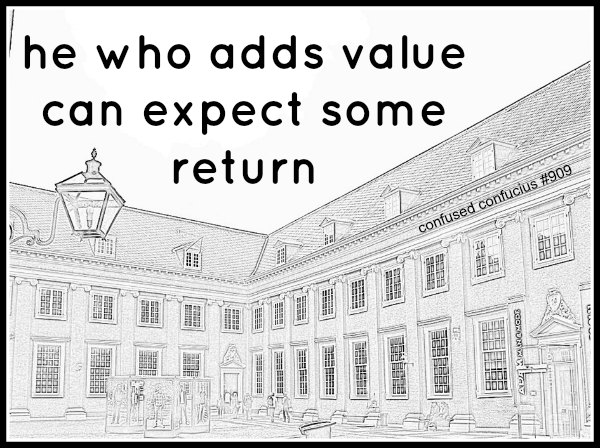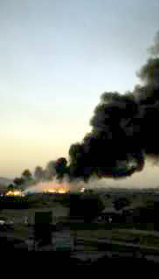Home | About CCW | Contact Us | Climate change Meaning | Causes | Solutions | Emissions | Carbon trading
Carbon market
Each carbon market was created for the buying and selling of carbon credits and to acquit carbon permits. The idea is that if carbon can be traded, so the power of market forces can be harnessed to make activities that emit CO2, a significant greenhouse gas, expense and uncompetitive. In time businesses will be forced to switch to cheaper, less carbon intensive, activities.
Pricing carbon makes it into a commodity, a good that can be bought and sold in standard units [CO2e]
This does seem rather odd. After all carbon exists everywhere. And as carbon dioxide is critical for plant growth and for putting bubbles into fizzy drinks, to buy and sell it seems peculiar.
Clearly markets for carbon are artificial inventions.
Nobody buys tonnes of CO2e because we want to or need to but because the law says we have to. Carbon is bought and sold as credits and permits because international convention through the UNFCCC declared carbon as a pollutant and we decided that markets would be the best way to deal with it.
The problem begins because diffuse pollutants are not easy to control.
If a factory releases a contaminant into a local river or a poorly maintained vehicle burns oil, we know who is responsible. It is easy enough to fine or prosecute the owner of the factory or the vehicle. These are point sources of pollution and relatively easy to regulate and police.
Diffuse pollution that comes from everywhere and impacts everywhere is more difficult to stop.
In London when people used coal fires for warmth and the smoke combined with moist air in fog to create smog it had a disastrous effect on health.
The Great Smog of 1952 resulted in more than 13,000 deaths, an event severe enough to shake policy makers into passing the Clean Air Act in 1956 that enforced smokeless zones. This policy trigger hastened the arrival of central heating systems run on natural gas.
People no longer burnt coal and there were no more severe smog events.
If we assume for the moment that greenhouse gases are a pollutant produced from the burning of fossil fuels and the clearing of land for agriculture, we have an even more tricky problem than that from smoke.
Greenhouse gases are produced everywhere for a wide range of activities.
So rather than fine everyone or enact laws to stop emissions the idea is to price carbon, or more strictly a price on the emission of greenhouse gas to the atmosphere measured in CO2e.
This makes activities that emit carbon more expensive.
Ramp up the price by restricting the supply of emission credits and soon it is simply too expensive to emit and businesses change their behaviour because they do not want to loose money.
That is what a carbon price is, a way of changing behaviour.
Neat idea.
Get the people to change by economic attrition. It is an approach that is
- less controversial than a fine
- more palatable than a tax
- provides opportunity
- allows people to decide rather than be told
Only to implement a price you need a carbon market where the commodity can be bought and sold.
How to create a carbon market
First create the commodity that can be traded.
This is one tonne of greenhouse gas as carbon dioxide equivalents, tCO2e, recorded as as either permits or credits. This is clever because it can be used for all greenhouse gases simply by converting the amount of emission to an equivalent in carbon dioxide.
A carbon permit is a permission note to emit one tonne of CO2e.
A carbon credit is one tonne of CO2e in avoided emissions (abatement), reduced emissions (mitigation) or carbon sequestration (mitigation and biosequestration) that can be exchanged as equivalent to one tonne of CO2e emissions.
This means there is a measurable unit of emission and several ways to account both emissions and carbon credits.
Next identify the activities classified as polluting and then make it an obligation to purchase permits (or credits) equivalent to the amount of greenhouse gas that the activity emits.
The carbon market is where polluters buy the necessary permits and because it is a market the price ends up being 'negotiated' with deals struck and various options created.
Only this is not an ordinary market where price is a function of supply and demand. The idea is for the price to rise over time to make pollution more expensive.
This requires that supply is capped by intervention from Governments to be always lower than demand.
In the end activities that pollute become so expensive that nobody can afford to do them.
Eventually the market collapses but by then polluting activities have declined dramatically.
The conundrum
Market mechanisms have been around for a long time and are always popular. People like the opportunities that they bring to make money.
It is not clear if the kind of markets we have implemented for carbon market will have the effect we want and may not deliver a global warming solution.
Postscript
As with many good ideas, success is not a given.
Arguably the market mechanism for emission reduction through carbon trading has not launched in the way that was expected. The price for carbon has not reached the levels most analysts predicted were necessary to really change behaviour and the credit option has been limited.
And yet emissions have gone down. Many countries are expecting to meet their reduction targets and renewable energy options are an increasing proportion of the fuel mix.
This is what was needed. The question remains whether it is enough.
Related topics from climate-change-wisdom:
carbon trading | cap-and-trade | carbon cedit | carbon offset
climate change wisdom › solutions › carbon market

Confused Confucius spurned the monastic life for the world of work, moral conundrums and mobile devices. His sayings, questions and incongruous idioms on the environment and modern life bring delight and bafflement in equal measure... check out more Confused Confucius sayings.
Recent Articles
-
Reducing emissions while looking for solutions...
Nov 01, 15 04:46 PM
I've seen a lot of post's online for ideas on reducing emissions. The one suggestion I have not seen, is the most obvious. There should be a government -
Climate change evidence
Mar 24, 15 06:22 AM
Real climate change evidence has to demonstrate a change in climate. An extra sunny day or a severe storm or a flood is not enough. -
The climate change effect
Feb 19, 15 03:08 AM
What will be the climate change effect? There isn't one, there are many. Perhaps too many for us to understand.





New! Comments
Have your say about what you just read! Leave me a comment in the box below.